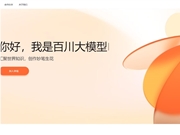In the rapidly advancing era of artificial intelligence, a court ruling in Hamburg, Germany, has sparked new discussions about the collection and use of AI training data. This case not only prompted public reflection on the relationship between AI and copyright but also provided significant reference for the legal framework of future AI development.
The incident originated from the nonprofit organization LAION downloading a copyrighted image from a picture agency website without authorization. LAION paired this image with related descriptions and included it in their free dataset named "LAION-5B." This extensive dataset contains up to 5.85 billion image-text pairs, which are widely used for AI training.

Image Source Note: The image was generated by AI, provided by the image licensing service Midjourney
Facing copyright infringement accusations from the photographer, the Hamburg Regional Court delivered a surprising verdict. Although the court acknowledged that LAION's actions involved copyright-related copying, it deemed them permissible under the provisions of Section 60d of the German Copyright Act for non-commercial scientific research purposes, specifically text and data mining. The court emphasized LAION's specific operational methods rather than its organizational structure, as the dataset released by LAION is free for research purposes and does not pursue commercial interests.
It is noteworthy that even if commercial companies are using this dataset, the court still insists that this does not affect LAION's non-profit nature. This perspective undoubtedly provides significant support for AI research institutions in data collection.
However, this ruling did not completely resolve all issues. The court did not rule on whether a broader exception under Section 44b for text and data mining could be applied. This provision allows the copying of legally obtained works for text and data mining, but requires the deletion of these copies when they are no longer needed. Meanwhile, rights holders can retain their usage rights by providing machine-readable notices in their online works. The court expressed doubts about whether the picture agency website provided such a notice.
Considering the importance and controversy of this case, the photographer is likely to appeal to a higher court. Although this ruling brings hope for research institutions to collect AI training data, there remains a question about whether profit-making companies can also do so. Especially for companies like OpenAI, which use copyrighted data from the internet for training without permission, they may face more legal challenges.
Currently, there are several lawsuits in this field awaiting results, the most notable being the legal battle between The New York Times and OpenAI. The outcomes of these cases will have a profound impact on the future development of the AI industry.
This German court ruling provides a new perspective on the relationship between AI and copyright. It not only involves the balance between technological innovation and intellectual property protection but also reflects how the law adapts to a rapidly changing technological environment. As AI technology continues to develop, similar legal and ethical issues may become increasingly common, requiring joint discussion and resolution from all sectors of society.
In the future, we may need to find a balance between promoting AI innovation and protecting the rights of creators. This could involve amendments to copyright laws, the establishment of new licensing mechanisms, or the exploration of new cooperative models between AI companies and content creators. Regardless, this case undoubtedly showcases the complex legal and ethical challenges faced during the development of AI and provides important reference for the formulation of future related policies.










